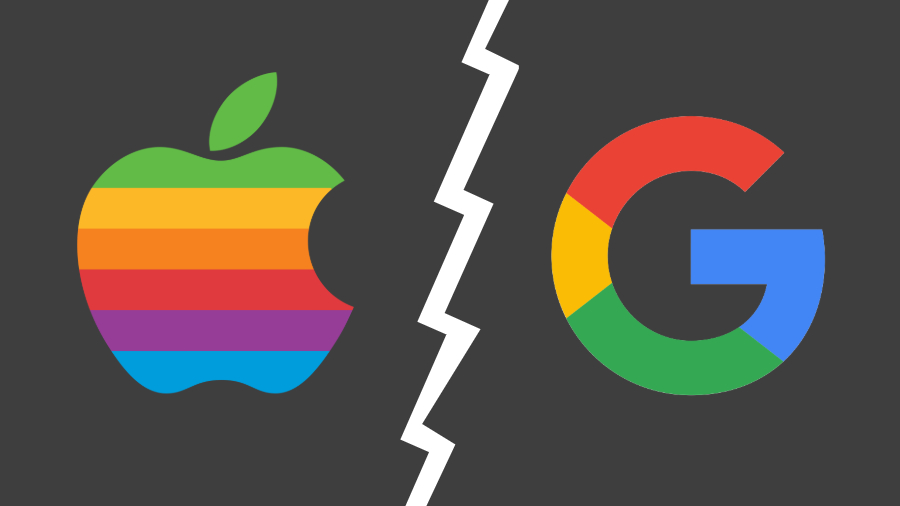Needless to say, privacy is one of those areas where recently tech companies are willing to give whatever it takes to maintain an image of a trustworthy company.
Now, Apple and Google are possibly the strongest pillars of the smartphone industry. It’s expected from both the companies to harbor a positive attitude towards the privacy and security of users. But generally speaking, Apple is regarded as a better company when it comes to privacy.
The Apple-Google privacy battle
A few weeks back, Google CEO published an opinion post in the NY Times where he took a dig at the iPhone maker for selling expensive products in the name of privacy.
Although he didn’t take any names, Pichai said that “privacy cannot be a luxury good offered only to people who can afford to buy premium products and services.”
He argued that Google offers many of its products for free and fueled by ads, but they still pack enough features to safeguard the privacy of the users.
Pichai explained that Google’s mission is to “create products that work the same for everyone.” It doesn’t matter “whether you’re a professor at Harvard or a student in rural Indonesia,” Google Search works the same for everyone.
The company is also trying to improve the overall experience on lower-cost phones as it’s there on premium ones. “Privacy must be equally available to everyone in the world,” said Pichai.
Craig Federighi, Apple’s SVP of Software Engineering, was quick to pick up the cues and came up with a hard response. In an interview with The Independent, he said he “doesn’t buy into the luxury goods dig.”
According to him, other companies have been making a lot of “positive noises about caring about privacy,” which he feels is “gratifying.”
Should Apple be on that list? The company very confidently displays giant billboards saying, “What happens on your iPhone stays on your iPhone.” But recently, in a blow to Apple’s privacy claims, a lawsuit has been filed against the company alleging that Apple gave iTunes data to third parties.
Federighi thinks that privacy is a far deeper issue. For companies that depend on data collection, it boils down to their business practices and culture that doesn’t change overnight. It might take a couple of months and press releases before that happens. Of course, he didn’t take names like Google or Pichai.
He said that Apple wants to sell “products to everyone we [Apple] possibly could.” He further added that their products are “certainly not a luxury” and the company aims to provide “a great user experience” that everyone should have.
Leaving privacy aside, it’s hard to believe the Apple exec says Apple products are ‘not a luxury.’ In some countries, iPhone products cost as much as twice or thrice the monthly salary of common citizens.
What about Google?
Google is a company which possibly tracks your every move, your location, your purchases, and so on. It is also known for using data to make its AI features better over time for its apps and services like Google Assistant, Maps, etc. In the past, we have heard reports of Google tracking location even when the phone’s location sensor is turned off.
Pichai does acknowledge that Google fuels its products by collecting data from its users’ devices. But he claims that the data is aggregated, anonymized and that only a small chunk of it is used for serving ads.
He assures that Google always sticks to the policies of not selling personal data to third parties and users should get an option to turn off data collection at any time.
What about Apple?
During the interview, Federighi was also asked about Apple’s choice of not collecting data which in some way impacts the growth of its products. Like, Siri isn’t as smart as Google Assistant.
According to him, deciding between data collection and making better AI features is a “false trade-off.” Sometimes, it’s a challenging task and requires extra work. “But that’s worth it,” he says.
This, in turn, includes practices like buying a collection of public photos or using a publicly available audio dataset to train the algorithm.
Where’s it going?
So, it seems that both companies have a very different ideology for inserting privacy into the lives of their users. Apple has kept itself away from data collection and chose to ask for cash from buyers. Recently, Apple has created a new tool for Safari which tracks ads without invading people’s privacy.
Google, on the other hand, has gone for a more rational approach. The company is trying to find the fine line between extensive tracking and privacy. That’s because it wants to keep its services accessible to people without taking money from the users.
But mostly after Facebook’s Cambridge Analytica debacle, Google has also started to make its products more transparent. This includes making privacy controls more visible across apps and adding features to control ad-tracking in Chrome. Google has also expanded its Incognito mode to other apps, like YouTube. The same is expected to arrive on Google Maps and Search as well.










